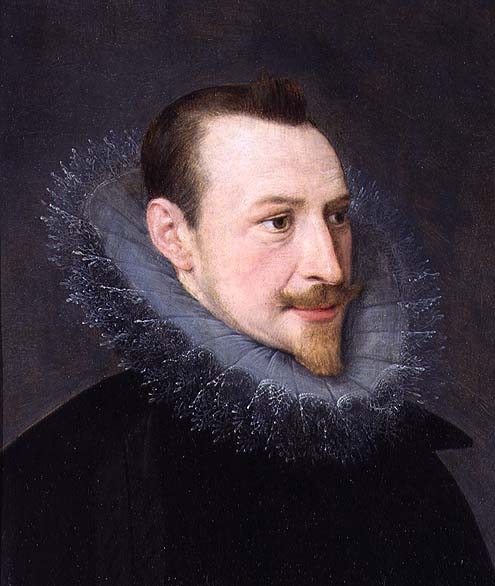A well known literary figure associated with Christchurch is the English poet Edmund Spenser (1552-1599).
Spenser was best known for the epic poem The Faerie Queene, one of the longest poems in the English language and a fantastical allegory celebrating the Tudor dynasty and Elizabeth I. The Faerie Queene found political favour with Elizabeth I and was consequently a success, to the extent that it became Spenser’s defining work. The poem found such favour with the monarch that Spenser was granted a pension for life amounting to £50 a year.
Spenser came to Ireland in 1580 in the service of the newly appointed Lord Deputy, Arthur Grey. He then served with the English forces during the Second Desmond Rebellion (1579–1583), launched by the Fitzgerald dynasty of Desmond in Munster, against English rule in Ireland. After the defeat of the native Irish, Spenser was awarded lands in County Cork that had been confiscated in the Munster Plantation during the Elizabethan conquest of Ireland. Among his acquaintances in the area was Walter Raleigh, a fellow colonist.
Local tradition has it that Spenser married Elizabeth Boyle in Christchurch on Midsummer Day, 11 June 1594. Elizabeth was a relative of Richard Boyle, later first Earl of Cork (who was father to scientist Robert Boyle of ‘Boyles Law’ fame). The event was celebrated in Spenser’s Amoretti and Epithalamion, published in London in 1595.
The following lines of Spenser are quoted as ‘proof’ that the marriage took place in Cork, and since Christchurch was the principal church in Cork, it is believed that the marriage must have taken place there.
“Tell me ye merchant daughters, did ye see
So fair a creature in your town before?
Her goodly eyes like sapphires shining bright
Her forehead ivory white,
Her lips like cherries charming men to bite.“
Tradition also has it that after the wedding Spenser and his bride went home in a boat moored at the present day Grand Parade.
During the Nine Years War in 1598, Spenser was driven from his home by the native Irish forces of Hugh Ó Néill. His castle at Kilcolman, near Doneraile in North Cork was burned to the ground, and it is thought one of his infant children died in the blaze – though local legend has it that his wife also died.
Spenser moved back to England soon after and died penniless in London in January 1599. Spenser was buried in Westminster Abbey, near the grave of Geoffrey Chaucer and is now recognized as one of the premier craftsmen of Modern English verse, and one of the greatest poets in the English language.
